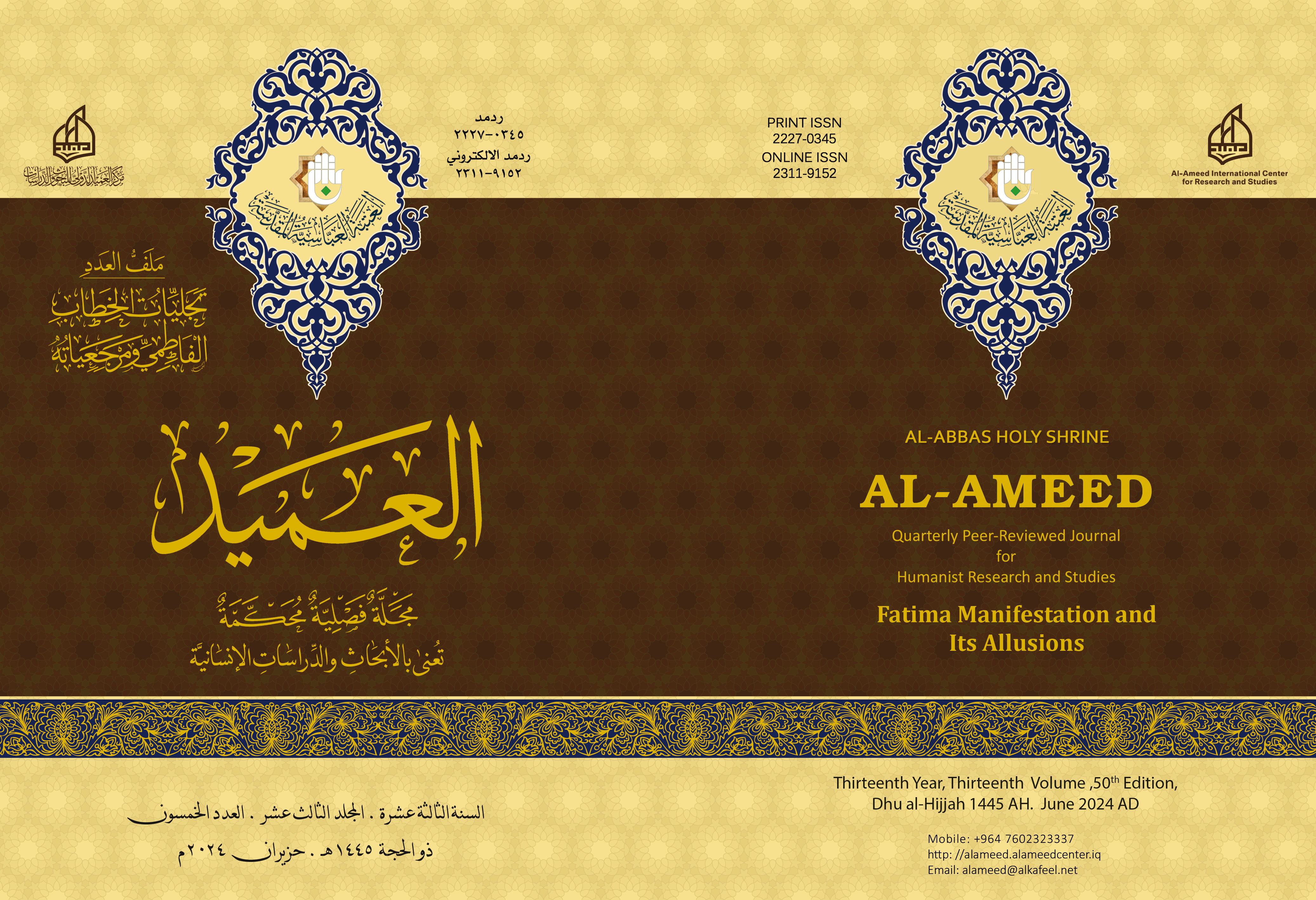العزة والاباء في اللغة الإنجليزية مع الإشارة الى الخطبة الفدكية للصديقة الطاهرة فاطمة الزهراء(عليها السلام): دراسة نحوية - دلالية
DOI:
https://doi.org/10.55568/amd.v13i50.213-229الكلمات المفتاحية:
العزة، الخطبة الفدكية، السيدة الزهراء (عليها السلام)، دراسة نحوية دلاليةالملخص
ان العزّة والاباء هو شعور داخلي يجعل الإنسان يحس بالكرامة وعلو الشخصية. وتتوافر هذه الحالة حين يجد الإنسان نفسه مسنوداً ومرتبط ارتباط وثيق بالله (سبحانه وتعالى). حيث انها من المفاهيم القرآنية التي اهتم بها الإسلام. وقد دعا القرآنَ الكريم إلى ترسيخ معانيَ العزة في نفسِ الانسان لإظهار عِزَّةٌ تجعله يترفَّع عن كلِّ ما من شأنه أن يَحُطَّ من قدره كالتذَلُّلٍ وبث الشكوى. وتعني العزّة الاستئناس بالله سبحانه وتعالى. ويكمن مفهوم العزّة بمعناه الحقيقي والمطلق بأتباع اوامر الله سبحانه وتعالى. ويّعد احد اخلاقيات الاسلام.
ان روح العزة والإباء واضحة في مواقف الصديقة الطاهرة (عليها السلام) حيث انها قد امتزجت بخطبتها وتجلّت بأبهى صورها. وما زال صوتها (عليها السلام) الرافض للذلّة مدويّاً حتّى اليوم. وتندرج مشاعر العزّة والاباء عند الصديقة الطاهرة (عليها السلام) ضمن برنامج اصلاحي شامل وأمر مرتبط بالهدف الالهي والرسالة السماوية. وقد تبلورت في خطبتها (عليها السلام) مضمونا وتطبيقا.
وتتلخص مشكلة البحث في الإجابة عن الأسئلة الآتية:
- ماهي الاساليب الدالة على العزّة والإباء في الخطبة الفدكية للصديقة الطاهرة فاطمة الزهراء (عليها السلام)؟
- هل يوجد علاقة بين مفهوم العزّة والموضوعات التي طرحتها الزهراء (عليها السلام) في خطبتها؟
تهدف الدراسة إلى:
1- استقصاء البعدين النحوي- الدلالي لاساليب العزّة في الخطبة الفدكية للصديقة الطاهرة.
2- تحديد العلاقة بين العزّة والإباء والقضايا التي تطرقت اليها الزهراء (عليها السلام) في خطبتها.
وتفترض الدراسة:
1) تفّرد الخطيبة باستعمالها اساليب لغوية معينة دالة على العزّة والإباء.
2) من المرجّح وجود علاقة وثيقة بين اسلوب العزّة والإباء والمواضيع المختارة في العينة المنتقاة.
وبعد تحليل العينة المنتقاة، برهنت نتائج البحث مصداقية الفرضيات المذكورة انفاً.
التنزيلات
منشور
إصدار
القسم
الرخصة
الحقوق الفكرية (c) 2024 مجلة العميد مجلة فصلية محكمة تعنى بالابحاث والدراسات الإنسانية

هذا العمل مرخص بموجب Creative Commons Attribution-NonCommercial 4.0 International License.


